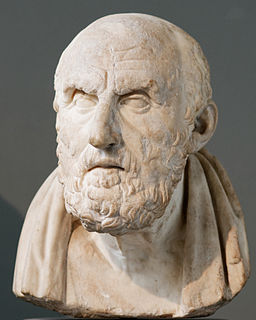A Quote by James Madison
A dependence on the people is, no doubt, the primary control on the government; but experience has taught mankind the necessity of auxiliary precautions.
Quote Topics
Related Quotes
If men were angels, no government would be necessary. If angels were to govern men, neither external nor internal controls on government would be necessary. In framing a government which is to be administered by men over men, the great difficulty lies in this: you must first enable the government to control the governed; and in the next place oblige it to control itself. A dependence on the people is, no doubt, the primary control on the government; but experience has taught mankind the necessity of auxiliary precautions.
Great part of that order which reigns among mankind is not the effect of government. It has its origin in the principles of society and the natural constitution of man. It existed prior to government, and would exist if the formality of government was abolished. The mutual dependence and reciprocal interest which man has upon man, and all the parts of civilised community upon each other, create that great chain of connection which holds it together.
It's no secret that the environmental movement is ultimately designed to create new inroads into increased government control. All of the shots taken at emissions, the dependence on fossil fuels, and noise pollution are designed to paint those things as symptoms of a problem, with the government able to step in as the solution.
Scientific modes of thought cannot be developed and become generally accepted unless people renounce their primary, unreflecting, and spontaneous attempt to understand all their experience in terms of its purpose and meaning for themselves. The development that led to more adequate knowledge and increasing control of nature was therefore, considered from one aspect, also a development toward greater self-control by men.
Over and over victims are blamed for their assaults. And when we imply that victims bring on their own fates - whether to make ourselves feel more efficacious or to make the world seem just - we prevent ourselves from taking the necessary precautions to protect ourselves. Why take precautions? We deny the trauma could easily have happened to us. And we also hurt the people already traumatized. Victims are often already full of self-doubt, and we make recovery harder by laying inspectors blame on them.
Government is not infallible. Government is only an executive control, a centralized authority for the purpose of expressing the will of the people; before you have a government you must have the people. Without the people there can be no government. The government must be, therefore, an expression of the will of the people.
People with military experience seem to do very well in these situations. They've been taught that they can control their destiny, which is half the battle. They also have some experience in getting out of bad situations even if just through training. They know they have to make a plan and follow it and execute it.
Ours was the first revolution in the history of mankind that truly reversed the course of government, and with three little words: 'We the people.' 'We the people' tell the government what to do, it doesn't tell us. 'We the people' are the driver, the government is the car. And we decide where it should go, and by what route, and how fast. Almost all the world's constitutions are documents in which governments tell the people what their privileges are. Our Constitution is a document in which 'We the people' tell the government what it is allowed to do. 'We the people' are free.































